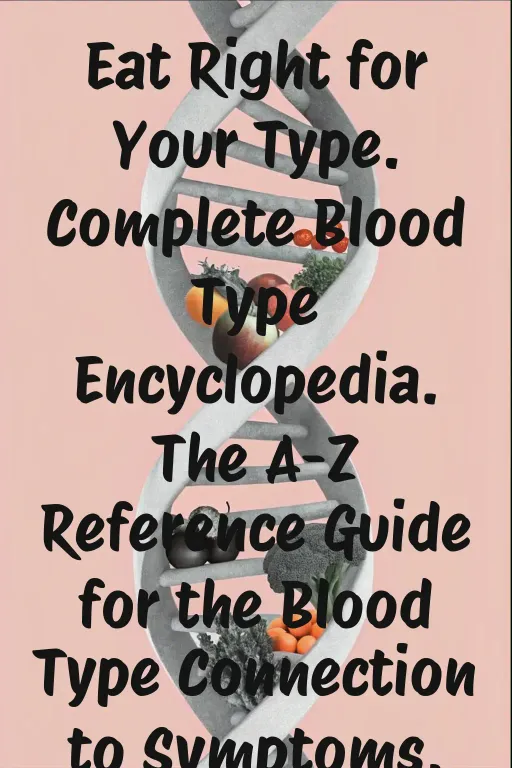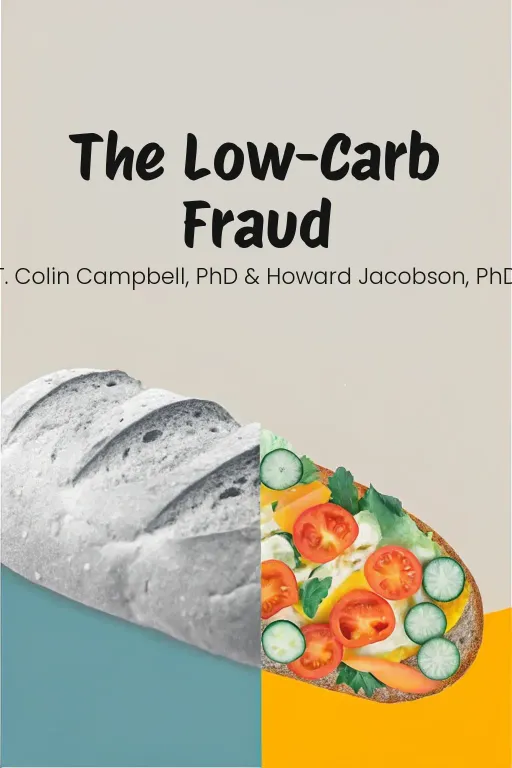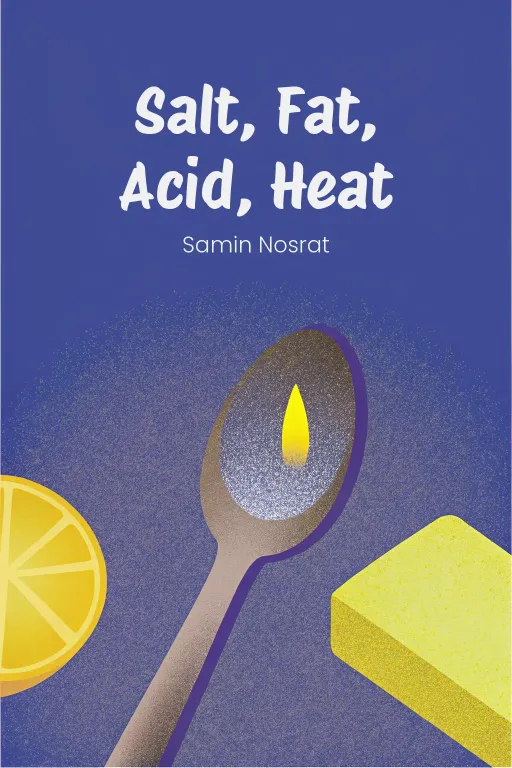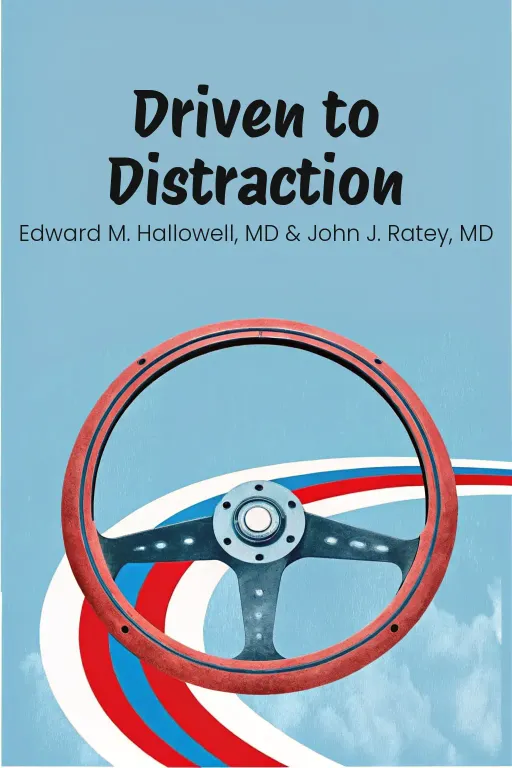
Crush Cravings: Hack Your Hormones Now!
Podcast by Beta You with Alex and Michelle
The Complete Guide to Success on the Keto Diet, Including Simplified Science and No-Cook Meal Plans
Crush Cravings: Hack Your Hormones Now!
Part 1
Alex: Hey everyone, welcome! Today we’re going to explore a really fascinating, potentially game-changing way of looking at health. It’s a perspective that kind of flips conventional dietary wisdom on its head. Have you ever felt like you’re doing everything “right”? You know, eating low-fat, avoiding all the supposedly bad foods, and yet you’re still feeling drained, you can’t seem to lose weight, or your overall health just feels…off? Michelle: Yeah, Alex, sounds familiar, right? I think a lot of people can relate. It's like, we’ve been told to eat this way for decades. And what's the result? Well, our metabolic health is, shall we say, less than stellar. So, are you suggesting that all this time, the real problem wasn’t what we were doing, but what we were told we “should” be doing? Alex: Exactly! And that's why we're diving into the ketogenic diet today. Now, before everyone says "fad diet", this is actually a scientifically backed approach to really healing your metabolism. We're going to break down how it can combat insulin resistance, balance your hormones, and really reshape your health in a way that most diets just can't. Michelle: Okay, interesting. So, where's the catch? I mean, butter and steak sound amazing, but it can't be as simple as just ditching bread and calling it a day, right? There's gotta be more to it. Alex: Absolutely. That's why we're going to break it down into three key pillars. First, we're going to really dig into metabolic dysfunction, to understand why it's so frequently the underlying cause of stubborn weight gain and chronic disease. Then, we're going to explore the ketogenic diet as a sort of metabolic multi-tool, explaining how it helps your body switch fuel sources and, ultimately, really thrive. And finally, we'll talk about how hormones, mental health, and lifestyle all play a role in this, so it becomes more than just a diet; it's really a sustainable transformation. Michelle: A symphony of fat-burning, huh? Alright, let's see if it can really play all the right notes. Otherwise, we might have to add "Keto Confusion" to our list of cautionary tales!
Metabolic Health and Insulin Resistance
Part 2
Alex: Okay, Michelle, so we've set the stage, right? Let’s really dive into the core problems: metabolic dysfunction and insulin resistance. This isn't just some niche health thing; it’s actually a massive, quiet problem that's driving some of the biggest chronic diseases we're dealing with today, like type 2 diabetes and heart disease. Michelle: Quiet maybe, but when you think about everyone struggling with fatigue, weight gain, those awful sugar crashes, or even just brain fog, it seems pretty loud. So, if insulin resistance is the sneaky villain here, what's actually going on in the body? Give us the big picture. Alex: Right, so at its heart, insulin resistance is basically when your body loses the ability to use insulin effectively. Insulin’s job is to help move glucose—that’s sugar—into your cells for energy or storage. This resistance builds up over time, and it's often fueled by eating too many carbs, especially those refined, processed foods. Michelle: Ah, so that breakfast pastry, the mid-morning soda, and the late-night pasta are the usual suspects, huh? Alex: Exactly! Think about it: every time you eat carbs, your blood sugar spikes, and your pancreas releases insulin to bring it back down by moving glucose into cells. That’s perfectly normal when you do it in moderation. But when you're constantly eating carbs—like 300 grams a day, which is pretty typical in a Western diet—then the whole system gets overworked. Michelle: Right, so the body gets tired of insulin constantly knocking on the door, over and over again. It’s like trying to ignore a persistent salesman. Alex: Precisely! Your cells start to become less sensitive to insulin. And then, your pancreas starts pumping out even more insulin to compensate, which leads to chronically high insulin levels—we call that hyperinsulinemia. And here’s the thing: the cells still don’t get the message. Glucose just hangs around in the blood, insulin levels keep rising, and you’ve got a real metabolic mess on your hands. Michelle: Right, gotcha. So insulin becomes like junk mail, piling up, getting more desperate. But why does all this matter besides just sugar logistics? What's the real fallout here? Alex: The fallout is what we see around us every day: rising rates of obesity, diabetes, and cardiovascular disease. Insulin doesn’t just regulate glucose; it also plays a big role in fat storage. When insulin levels are chronically high, your body is pretty much stuck in fat-storing mode, instead of burning fat for energy. Michelle: So, it’s not just about that donut spiking your blood sugar - it's about turning your body into a savings account for fat, where no withdrawals are allowed! Alex: Exactly! And think about a kid having sugary cereal for breakfast. First, his insulin spikes to deal with that sugar rush. But then, his blood sugar crashes mid-morning. That leads to fatigue, irritability, and makes it hard to focus. Even at such a young age, he's stuck in a loop that sets him up for long-term metabolic problems. Michelle: Talk about starting life at a disadvantage. And let's not even think about those school lunches next, yikes. But, tell me, besides carbs, are there other players in this metabolic drama? Alex: Absolutely. Fat cells, inflammation, and insulin resistance form a nasty cycle. Fat cells--the ones that get bigger as they store excess energy--become stressed and start releasing inflammatory markers. This then disrupts hormone signaling and worsens insulin resistance. Michelle: So it sounds like fat cells aren't just there, being static. They're active troublemakers when they're overloaded? Is this where belly fat, also known as visceral fat, becomes a red flag? Alex: Exactly. Visceral fat is especially metabolically active. It is releasing inflammatory molecules and impacting organs nearby, such as the liver and muscles. That makes the body even less insulin-sensitive. That's why abdominal obesity is a much stronger sign of metabolic dysfunction than just overall body weight, you know? Michelle: And this really highlights that stereotype of someone eating their way to pre-diabetes. It's not just about overeating; it's about what kind of food it is and how that food messes with the whole system at a cellular level. Alex: 100%. Remember that guy who was middle-aged and eating way too many processed foods? His growing waistline was a sign, but really, his bloodwork told us everything. Sky-high inflammation markers, glucose levels rising, with important hormones like adiponectin that enhance insulin sensitivity just nowhere to be found. Michelle: So this guy's inflamed fat is like… some chaotic concert, signalling danger to every organ nearby. What I don't quite get is how you get the fat to leave. If it's staying because insulin blocks lipolysis, how do we kick it out? Alex: This is where dietary interventions are key, especially low-carb strategies like the ketogenic diet. By lowering carbohydrate intake, you naturally reduce insulin production. When these insulin levels drop, the body starts unlocking those fat stores, and lipolysis kicks in. That process lets the body break down stored fat for energy. Michelle: Okay, let me play devil's advocate for a second. This doesn’t sound sustainable for the average person. I mean, are people actually seeing results when they cut carbs and let their bodies go into ketosis? Alex: Yes, absolutely. Take a woman who's struggling with obesity and type 2 diabetes. Her initial bloodwork was a big red flag--elevated fasting insulin, glucose, and hemoglobin A1c levels. Then she started on the keto diet. It was strict, with carb intake being limited to below 20 grams a day. Within weeks, her fasting insulin dropped almost 30%, she had more energy, and her cravings went away. Michelle: Wow. So not only did her body switch to fat-burning, but she started to reverse all these metabolic markers that were clearly heading her down a dangerous path, right? I'll give it credit there. Alex: And it’s not just this one time. Strategies such as keto highlight how you use nutrition to target the source of these issues rather than treat symptoms with medications that don’t actually address the underlying problem. Michelle: Okay, so we have carbs as the major villain, then insulin resistance is its nasty side effect, fat just making everything worse, but then keto comes along as an unlikely hero. So what parts of that strategy do we need to lock down?
The Ketogenic Diet: Principles and Benefits
Part 3
Alex: Okay, let's dive into the keto diet. It's all about getting your body into ketosis, right? The key is the balance of macros: aim for 70-80% of your daily calories from healthy fats, 10-20% from protein, and just 5-10% from carbs. That carb restriction—usually under 30 grams—that's what makes your body switch from burning glucose to fat for fuel. Michelle: So, that carb limit is a hard line in the sand. What happens if someone decides to, say, have a slice or two of pizza? Does the whole process just stop? Alex: Pretty much, yeah. Ketosis needs consistency. A high-carb meal can throw you out of ketosis because your body prefers glucose, even a little bit. That's why tracking what you eat is so important, especially when you're starting out. Michelle: Okay, so no "innocent" handful of potato chips. Got it. But what does ketosis actually feel like? How do you even know it's working? Alex: Good question. One of the first things you'll notice is consistent energy. When you're in ketosis, your body makes ketones from fat, and those give you a steady energy source, particularly for your brain. People often talk about feeling mentally clear, having fewer cravings, and just having lasting energy throughout the day. Michelle: Alright, that sounds almost too good to be true. What's the downside? Alex: Well, there's the adjustment period, called keto adaptation. For the first week or so, as your body switches to burning fat, a lot of people get the "keto flu"—you know, fatigue, irritability, headaches. It's not a setback; it's just your body adapting. Michelle: So, the first week of keto is like going cold turkey on caffeine. Your body throws a fit. How do you get through that? Alex: You manage it by staying hydrated and getting enough electrolytes. When you cut carbs, your body loses water, and along with it goes electrolytes like sodium, potassium, and magnesium. If you don't replace those, the symptoms can get worse. Broths, leafy greens, and even electrolyte supplements can really help. Michelle: That makes sense. It's like greasing the wheels as your metabolism shifts gears. Once you're past the keto flu, what's next? Alex: That's when you get deeper into ketosis, usually after a couple of weeks. Your body gets better at using ketones, so your energy stabilizes and cravings decrease. And that’s when people start seeing noticeable results—better blood sugar control, mental clarity, and fat loss. Michelle: And after that? If you've been doing keto for six weeks or more, what's the long game? Alex: In the long run, ketosis can have some pretty significant benefits. Once you're fully adapted, your body can improve hormone balance, reduce inflammation, and become more insulin sensitive. Those changes can lead to better metabolic flexibility, which means your body is more efficient at burning fat and managing energy. Michelle: Okay, but let's talk about real-world health results. I'm listening, but convince me this isn't just theoretical. Alex: Absolutely. Let's take diabetes as an example. A keto diet can really improve insulin sensitivity and lower blood sugar. There was a man with type 2 diabetes whose blood sugar was always high, even with medication. He switched to keto, focusing on foods like fatty fish, olive oil, avocado, and leafy greens, while cutting carbs way down. Within two months, his blood sugar was stable enough that his doctor lowered his medication. Michelle: That's impressive, but is it something people can actually stick with? A lot of people think diets like these are hard to maintain for a long time. Alex: That's a fair point, but it really depends on how you approach it and your mindset. Meal prepping, eating nutrient-rich foods, and allowing yourself some flexibility for occasional treats are all important. A lot of people move to a more moderate low-carb diet after they've reached their goals. Michelle: So, this guy didn't just get better blood sugar readings; he also got some freedom from medication and improved his overall health. What about other conditions? Alex: There's growing evidence that keto can help with neurological diseases like Alzheimer's. Brain cells that have trouble using glucose can use ketones as an alternative fuel. In one case, a woman with early-stage Alzheimer's started a keto diet with the help of her caregiver. Within months, her cognitive function improved, and she was able to participate in conversations and daily activities again. Michelle: That's a huge improvement in her quality of life—and for her family too. Alex: Exactly. And there's also research suggesting that keto might have a role in managing cancer, especially certain types of cancer that rely on glucose to grow. By cutting off the glucose supply, a keto diet could make traditional treatments more effective. Michelle: That's interesting. So, beyond weight loss, keto seems to be making a difference in some serious health areas. Does this mean we're finally starting to question the idea that dietary fat is bad for you? Alex: Absolutely. For years, we were told that dietary fat was the enemy and caused heart disease. But research shows that high-fat diets like keto can actually improve your lipid profile if you're eating healthy fats. They lower triglycerides, raise HDL—your “good” cholesterol—and often improve the size of LDL particles. Michelle: So, if you include saturated fat from a ribeye steak, you won't necessarily get in trouble with your cholesterol levels? Alex: Not if you're getting it from nutrient-dense sources and following a low-carb lifestyle. There are many examples of people who have improved their heart health markers after switching to keto. Michelle: Solid points. It sounds like this diet isn’t just promising transformation—it’s delivering it. But there’s still one lingering question: is keto really practical for the long haul?
Hormonal Regulation and Lifestyle Integration
Part 4
Alex: Okay, so we've laid the groundwork of metabolic health. Now let's dive into how a ketogenic diet can actually “unlock” these benefits. And Michelle, this is where things get really interesting because it's about more than just the diet itself, it's about hormonal regulation. All metabolic success boils down to hormones working together smoothly. We'll also see how making real lifestyle changes can cement these transformations for good. Michelle: Ah, so it's not just about hitting your macros and counting carbs, huh? You're saying insulin is important, sure, but it's just the beginning! You've got this whole hormonal cast – cortisol, leptin, ghrelin – that needs equal attention to keep the show on the road! Alex: Precisely! Let me explain how these key hormones tango with our diet and behavior. First up, insulin – it's not just about keeping blood sugar stable, it's also the gatekeeper for fat storage. Resetting insulin with something like keto can be a game changer, helping rebalance the whole system. Michelle: Right, I get insulin. It's like that controlling roommate who always has the keys to the snack cabinet! But what about the others? You mentioned cortisol. What role does “it” play in this drama? Alex: Cortisol is our "fight or flight" hormone, designed to give us a burst of energy in emergencies. But nowadays, with constant stress – deadlines, screens, late nights – cortisol levels are chronically high. And that messes with our metabolism, increasing belly fat and disrupting our appetite hormones, like leptin and ghrelin. Michelle: So, cortisol makes you not only feel stressed out but also actively works against your waistline. Sounds like a toxic relationship! Alex: Totally! And speaking of leptin, that's supposed to tell your brain, "Hey, we're good on energy, step away from the cookies!" But when you become leptin resistant, often from having too much body fat or inflammation, your brain just ignores those signals. It's like constantly hitting snooze on your body's hunger alarm. Michelle: Okay, leptin's the off-switch for hunger, but if it's broken, the system just keeps running and demanding more fuel. That explains why people feel hungry, even after they've eaten! What about ghrelin? Is that the one that makes us crave pizza at midnight? Alex: Bingo! Ghrelin is your "hunger hormone." It rises before meals to tell you to eat and falls once you're full. But if you eat irregularly, don't sleep well, or have too much stress, ghrelin production goes haywire, leaving you feeling hungry all the time, even when you shouldn't be. Michelle: Okay, so insulin's the regulator, cortisol's the stress agent, leptin's the ignored voice of reason, and ghrelin's the non-stop dinner bell. Got it. How does keto come in and fix all of this hormonal mess? Alex: Great question! Keto helps by stabilizing blood sugar and lowering insulin levels, allowing your system to recover from being in a constant state of alert. As insulin decreases, so does inflammation, which improves leptin sensitivity and creates a healthier feedback loop for hunger and feeling full. Michelle: So, reducing carbs isn't just about calories. It's about resetting this whole endocrine landscape. But what happens to cortisol when someone cuts out their comfort foods? Doesn't that kind of deprivation just ramp up stress? Alex: Exactly! That's why stress management is so crucial during this transition. Keto isn't just about the diet changes, it's about building routines that support comprehensive health. Practices like yoga, deep breathing, and getting enough sleep directly counteract cortisol. That way, you're setting yourself up for balanced hormones! Michelle: Easier said than done, though, right? “Reduce stress” can feel like just another chore on the to-do list. How can people actually put this into practice without adding to their stress? Alex: Start small. Even just five minutes before bed for mindfulness or disconnecting from screens can make a difference. I read about someone recovering from burnout who used ten minutes each night for focused breathing, and they actually saw improvements in their sleep and energy as their cortisol levels came down. Michelle: A 10-minute investment for stress relief and hormonal calm? I like those numbers. You also mentioned sleep. Where does that fit into all of this? Alex: Sleep is the foundation of hormonal health. When you don't sleep well, it throws off leptin and ghrelin, creating a perfect storm of increased hunger and decreased satiety. Even one bad night of sleep can skew these hormones enough to make you crave sugary foods the next day. Michelle: So, sleep deprivation is like turning up the "hungry" dial and dimming the "full" light. No wonder people reach for junk food after staying up all night. Alex: Exactly! And improving sleep doesn't have to involve huge changes. Sticking to a bedtime routine, avoiding blue light from screens, and creating a dark, quiet sleep environment can have massive effects. Scientists have even found that just adding an hour of sleep each night can help balance those hunger hormones and even lead to fat loss in weeks! Michelle: Now that's a simple lifestyle tweak with big potential. But let me push you a bit on practicality: what happens when someone's life is unpredictable? Between work, kids, and all of the things in life, people don't always stick to these routines. What's the real-world approach? Alex: Flexibility is key. It's not about aiming for perfection, but consistency over time. For example, one parent joined a peer accountability group to track their bedtime routines. Small, intentional adjustments – like planning sleep or prioritizing dinners with family – helped them stay on track, even when life got hectic. Michelle: Makes sense, a community and simple habit tracking, rather than aiming for the impossible, seems much more sustainable. Any other easy lifestyle changes folks might overlook here? Alex: Light exposure is underrated, but it plays a huge role in regulating our body's internal clock – our circadian rhythm. Bright morning light suppresses melatonin and kickstarts cortisol, giving you natural energy during the day. And avoiding screens at night ensures you produce melatonin for good sleep. Michelle: So, morning sunlight is like the "on" switch for your day, and blue-light-free evenings are the "off" switch. Makes sense. Alex: Those environmental cues can have a real impact on hormones and energy. Combine that with things like grounding – walking barefoot on natural surfaces – which has been shown to reduce stress and inflammation, and you're really maximizing the benefits. Michelle: Okay, walking the dog barefoot in the morning might get me some weird looks, but if it helps with stress and inflammation, I'm in! Anything else to tie this all together? Alex: The main thing is integration. By bringing together hormonal regulation, stress management, sleep optimization, and smart eating, you're tackling the root causes of the problem. It's not about fixing one thing, it's about empowering your entire system to run at its best. Michelle: So, building a support system for your hormones lets them work with you instead of against you. It's like giving the orchestra a new conductor so they're finally playing in tune. Alex: Exactly. And that's the map – science-backed strategies that combine diet, hormones, and lifestyle into a system for lasting health, not just quick results.
Conclusion
Part 5
Alex: Okay, so to sum up, we've covered a lot, right? From what actually causes metabolic issues and insulin resistance, to the real game-changer that is the keto diet. We talked about how switching to a low-carb, high-fat way of eating isn't just about weight loss. It's about fixing some seriously important hormones – insulin, cortisol, leptin, ghrelin. Not to mention how crucial it is to get enough sleep, manage stress, and build good habits to keep it all going. Michelle: Right. So, the big idea here isn't just cutting carbs or hopping on the latest diet craze, is it? It’s more like a full system reboot, about taking back control from all that metabolic madness and creating real, lasting health from the inside out. Alex: Precisely! And here’s something to think about: What if getting healthier wasn’t about saying "no" all the time, but about gaining freedom? Freedom from cravings, from being tired all the time, from constantly battling health problems. Understanding your body and what it's telling you is the first step. Michelle: Alright, I'm onboard. So how would someone like, apply this practically? Where do they start in modern urban life? Alex: The next is to test it! Start small. Ditch the processed carbs, add in some healthy fats, get a handle on your stress. See how your body reacts. Question what you've always been told. Try things out and find what you can actually stick with. Michelle: Okay, that makes sense. Alex: Because when it comes down to it, your health is the best investment you can make. It deserves your attention, some balance, and good care. Michelle: And hey, maybe a little extra sunshine and butter, too, right? Can't forget the good stuff. Alex: Always the essentials! Thanks for tuning in, everyone. Here’s to building better health, one good choice at a time.









